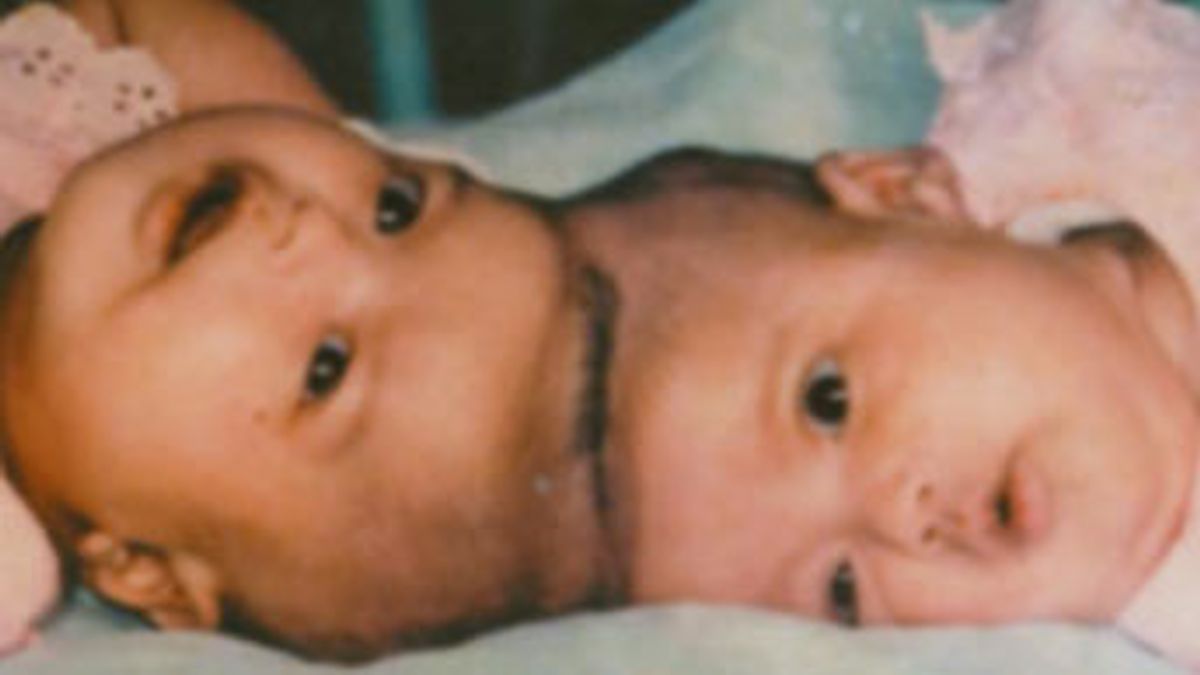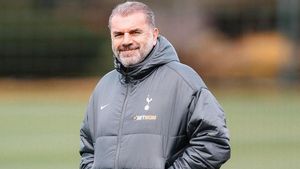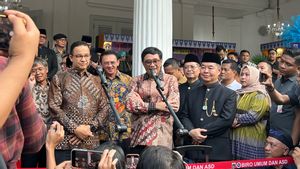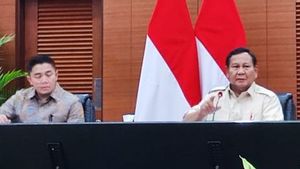JAKARTA - The team of doctors at the Regional General Hospital (RSUD) Dr. Moewardi, Surakarta, Central Java successfully operated the separation of two conjoined twins, Ba and Br. This is the umpteenth case of conjoined twins in Indonesia. Of the many, one of the most legendary was the operation to separate the babies of Yuliana and Yuliani in 1987.
In the operating room of the Cipto Mangunkusumo Hospital (RSCM), Central Jakarta, Padmosantjojo was accompanied by 98 members of his team 'facing' Yuliani and Yuliana who were on the operating table. At that time, Yuliani-Yuliana was two months and 21 days old.
For 13 hours Padmosantjojo led a team of doctors working on the operating table. Yuliani-Yuliana's scalp was slashed. Doctors also drilled and cut off the skull and the brain membrane behind it. Millimeter by millimeter. The operation was closed by attaching an artificial head covering bone - made of bone cement - for Yuliani-Yuliana.
The success of the Yuliani-Yuliana separation operation was heard by many world surgeons. They even came to Jakarta, asked Padmo to replay the recording of the operation and explain the method and strategy. They wonder how?

The group was led by Professor Mario Brock from Berlin, Germany together with Professor Becks, Padmosantjojo's teacher while studying at Rijks Universiteit, Groningen, The Netherlands. The group met Padmosantjojo at the Faculty of Medicine, University of Indonesia (FKUI) Salemba.
There Padmosantjojo replayed the video of the Yuliani-Yuliana separation operation. "They were shocked. 'Why, how come you can do it. Even though there are no good tools,'" Padmosantjojo gave an example, quoted from the Tempo article, Surgeon with Minimal Wages.
Then Padmosantjojo presented the principles of surgery he performed at a meeting of world neurosurgeons in Marrakech, Morocco, in 2005. The State, through the Ministry of Education, gave an award to Padmosantjojo. Minister of Education Fuad Hassan appointed Padmosantjojo to be a permanent professor of FKUI.
The team of surgeons in the Yuliani-Yuliana case was not just anyone. Head of the Children's Health Section of RSCM Iskandar Wahidiyat said that he deliberately appointed Padmosantjojo because he believed in the ability of the neurosurgeon specialist.
Padmosantjojo led two of his juniors, another neurosurgeon specialist who was part of the team: Hilman Mahyuddin and Lucas B. Atmadji. According to Hilman, the success of the Yuliani-Yuliana operation contributed to their name. Of course. At that time, the Padmosantjojo team was the only team that succeeded in operating on craniopagus conjoined twins.
About PadmosantjojoPadmosantjojo is the fourth neurosurgeon in the country. Prior to Padmosantjojo, the three earliest neurosurgeons in Indonesia were Professor Soewadji, Professor Basoeki, and Professor SK Handoyo. Padmosantjojo himself began following in the footsteps of the three of them studying neurosurgery in 1963.
Padmosantjojo was born February 26, 1938. The dream of becoming a surgeon had emerged since Padmosantjojo was little. However, on the way to pursuing that dream, Padmosantjojo was also interested in becoming a neurologist. There is a reason behind it, namely the defect in his face.
"Instead of being confused, I combined the two. Surgeon and neurologist," Padmosantjojo.
When he was six months old, Padmosantjojo suffered from a fungal infection in the ear to part of the right side of his face. The fungus caused his face to tilt. Padmosantjojo's right facial muscles were paralyzed. This disorder is also known as VII brain nerve palsy, typeperifere.

By becoming a neurosurgeon, Padmosantjojo wants to help more people. Even so, Padmosantjojo's choice was not without exams. When interviewed by Professor Soewadji, Padmosantjojo was even hinted that he should resign.
The head of the RSCM at that time also asked Padmosantjojo to rethink "'Do you want to kill yourself, Padmo?'" Padmo imitated Soewadji's words.
At that time, being a neurosurgeon was not a popular choice. Old school. The equipment for the operation is still minimal. The operation, it's very difficult. And clearly, neurosurgeons are not the right job to make money.
Care for the wind. Padmosantjojo's determination was unanimous. And he really doesn't care about money. Hilman, Padmosantjojo's most senior student who was part of the Yuliana-Yuliani team of surgeons, said the teacher never asked for payment from the patient.
But Padmosantjojo's attitude was inspiring. The students imitated him, including Hilman. However, in the 2000s, Padmosantjojo said this behavior was wrong. "Because after we retire we have nothing."
Padmosantjojo adopted Yuliani-Yuliana as children
Nearly 34 years have passed since the operation of the Yuliani-Yuliana separation by Padmosantjojo and the RSCM team of doctors. Since the success of the operation, Padmosantjojo and his wife Thea Tarek have adopted Yuliani-Yuliana as children.
After the free operation, Padmosantjojo found a place to live for Yuliana-Yuliani and her parents. Padmosantjojo also continues to monitor the growth and development of Yuliani-Yuliana, including helping to meet their nutritional needs.
When Yuliana-Yuliani and her parents returned to Tanjung Pinang, Padmosantjojo continued to provide material support, including supporting education costs. Yuliana-Yuliani then grew up. Both of them also completed their education in college.
Yuliana successfully completed her doctoral program at the Bogor Agricultural Institute (IPB). Meanwhile, Yuliani graduated from Andalas University. He is now a doctor. The separation of the head which was at risk in fact had no effect on Yuliani-Yuliana's brain growth.
Both of them are able to compete in the field of education. Look at Yuliana, for example, who successfully graduated as a Bachelor of Science in Nutrition and Food with a GPA of 4 so she got the cum laude predicate.
* Read other information about HISTORY or read other interesting writings from Yudhistira Mahabharata.
BERNAS OthersThe English, Chinese, Japanese, Arabic, and French versions are automatically generated by the AI. So there may still be inaccuracies in translating, please always see Indonesian as our main language. (system supported by DigitalSiber.id)













